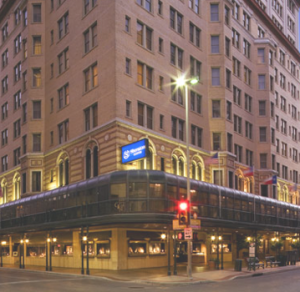The American Literature Association is holding a symposium at the Sheraton Gunter Hotel, San Antonio, Texas, from February 25-27, 2016, on “Frontiers and Borders in American Literature.”
 John Updike is often pegged as a mainstream writer, from The New Yorker “School of Johns,” but he was ahead of the curve with a number of novels and highly experimental with others.
John Updike is often pegged as a mainstream writer, from The New Yorker “School of Johns,” but he was ahead of the curve with a number of novels and highly experimental with others.
The John Updike Society would like to propose a panel on “John Updike as Vanguard Writer.” The Society is looking for 4-5 people to volunteer. This is not a guarantee of participation at this stage, only a proposal. But Updike worked on the forefront in a number of texts.
Couples was certainly a vanguard novel—so much so that its publication created a stir and made Updike the spokesperson for the “post-pill generation.”
While many novelists plumbed the depths of myth to use as allusions and allegories, with The Centaur Updike brought myths to the surface and treated it so matter-of-factly that one might consider it an early example of American magical realism.
Popular novelists recycled heroes in series of books, but with the Rabbit series Updike did something no serious literary novelist had done: he revisited the same character over the course of that character’s lifetime in four books, telling the story of a middle-class middle American and America’s story in the process.
And there are other examples as well. What other books did Updike push the boundaries or work on the border? This seems like an opportunity to draw attention to Updike’s innovative texts.
Members (or persons wanting to be on the panel and join the society) who are interested in participating should contact James Plath, jplath@iwu.edu. Proposals are due by December 1, so please respond by mid-November if interested in serving on a panel. Spaces will be filled on a first-come-first-served basis. Indicate, along with your willingness, a few of the Updike texts that you feel are on the “frontier” or “border” and what you’d feel comfortable talking about.
For more information about the symposium (and its rates), visit the American Literature Association’s website.



